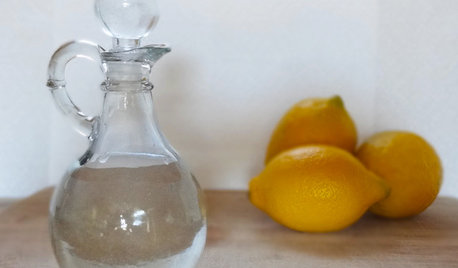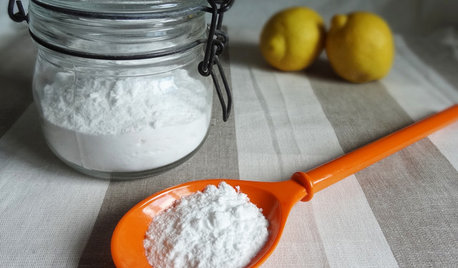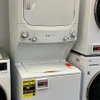Do 'green' detergents contain anti-corrosion agents?
livebetter
12 years ago
Related Stories

HEALTHY HOMEDetox Your Kitchen for the Healthiest Cooking
Maybe you buy organic or even grow your own. But if your kitchen is toxic, you're only halfway to healthy
Full Story
GREEN BUILDINGHouzz Tour: Going Completely Off the Grid in Nova Scotia
Powered by sunshine and built with salvaged materials, this Canadian home is an experiment for green building practices
Full Story
LAUNDRY ROOMS8 Tips for Cleaner, Greener Laundry
Let go of harsh chemicals and hot water, and go easy on your clothes, your wallet and the planet
Full Story
HOUSEKEEPINGVinegar and Voilà: Clean Your House the Natural Way
Ditch the commercial cleaners for nontoxic, inexpensive and versatile white vinegar
Full Story
MOST POPULAR33 Magic Household Cleaning Tips
Houzzers from around the world share their tips for transforming housework into child’s play
Full Story
HOUSEKEEPINGBaking Soda: The Amazing All-Natural Cleanser You Already Own
Battle grime, banish odors and freshen clothes with this common nontoxic cupboard staple
Full Story
MOVINGThe All-in-One-Place Guide to Selling Your Home and Moving
Stay organized with this advice on what to do when you change homes
Full Story
HOME TECHThe Inevitable Future of Drones Around Your Home
As Google joins the push for airborne deliveries, it seems only a matter of time before neighborhoods are buzzing with drones. Is that OK?
Full Story
HOUZZ TOURSMy Houzz: Colorful Cape Cod
A cozy reading nook, vibrant colors and travel treasures bring grace and comfort to a Massachusetts family's home
Full Story
KITCHEN DESIGNHow to Keep Your White Kitchen White
Sure, white kitchens are beautiful — when they’re sparkling clean. Here’s how to keep them that way
Full Story








izeve
Cavimum
Related Professionals
Freehold Kitchen & Bathroom Designers · Salmon Creek Kitchen & Bathroom Designers · Clovis Kitchen & Bathroom Remodelers · Oceanside Kitchen & Bathroom Remodelers · Wilson Kitchen & Bathroom Remodelers · Harrison Cabinets & Cabinetry · Los Altos Cabinets & Cabinetry · North Massapequa Cabinets & Cabinetry · Plymouth Cabinets & Cabinetry · Saugus Cabinets & Cabinetry · Manassas Custom Closet Designers · Springfield Custom Closet Designers · Eustis Flooring Contractors · Kalamazoo Flooring Contractors · Palm Valley Flooring ContractorslivebetterOriginal Author
livebetterOriginal Author
sshrivastava
livebetterOriginal Author
User
sshrivastava
sshrivastava